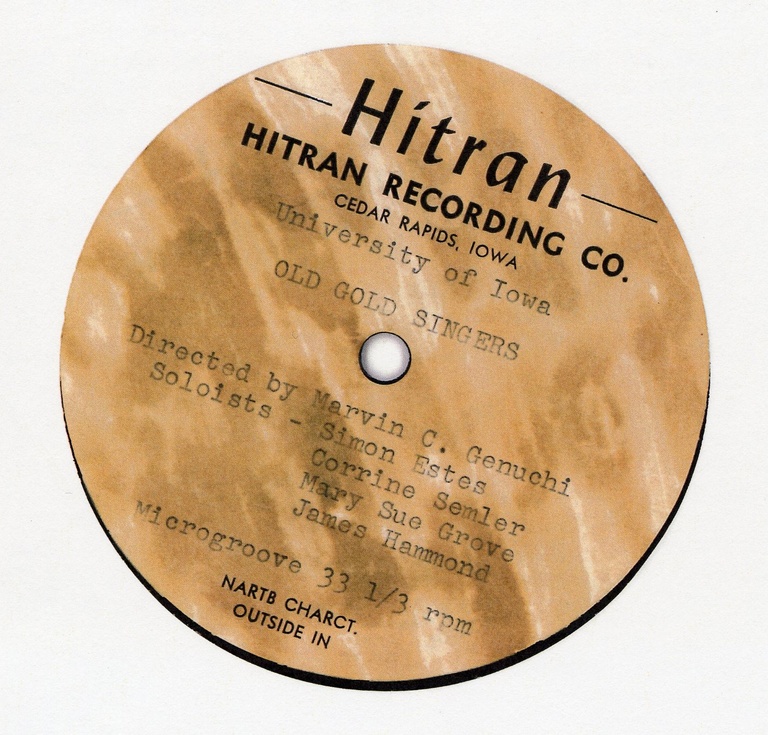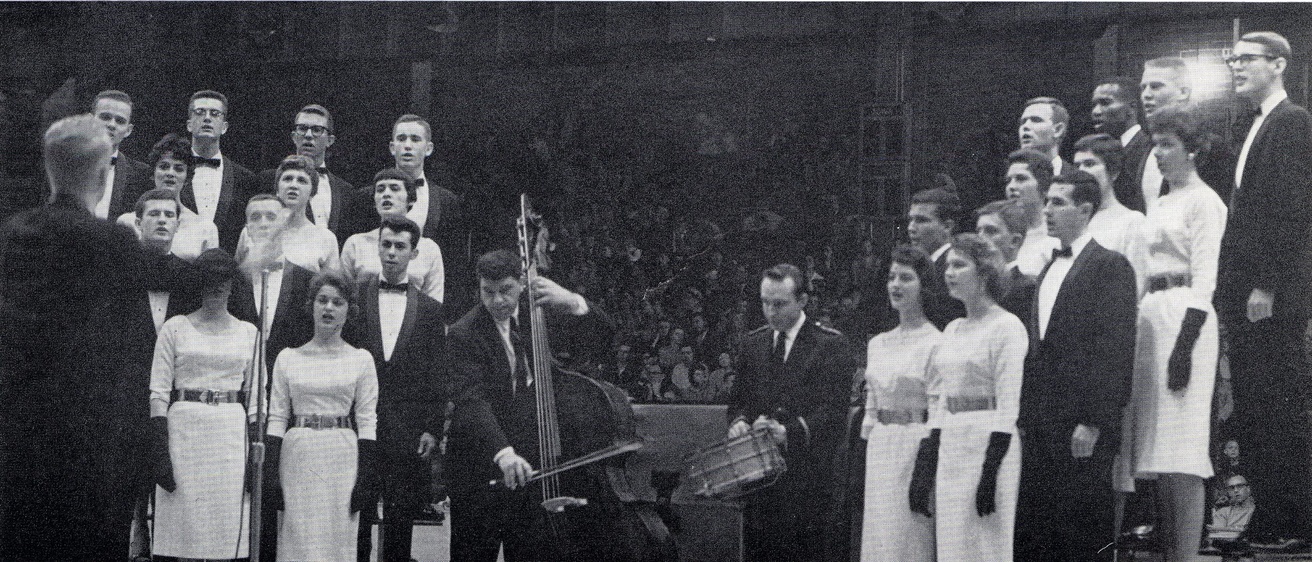(Editor’s note: The Old Gold series provides a look at University of Iowa history and tradition through images housed in University Archives, Department of Special Collections.)
Old Gold and his colleagues who work in archives, museums, and libraries are challenged daily to preserve historical records, regardless of format—hand-written letters, photographs, scrapbooks, and, in recent times, digital media. The latter includes portable hard drives, 1980s-era floppy disks, and 1990s-era 3.5-inch diskettes.
Then there are the analog recordings: VHS videotapes, audiocassettes, open reel audiotapes dating from the 1950s, and, of course, “vinyl,” shorthand for phonograph records. (Come to think of it, “shorthand” is also an old-timer’s word. Look it up, young’uns.) Vinyl hasn’t completely disappeared, but its share of the market has been decimated, first by the arrival of CDs in the 1980s and, more recently, by online resources like iTunes.
So Old Gold feels a mix of excitement and worry when something like an LP record arrives in the mail. Professional audio preservationists wait for our call when it happens because we rely on them to help us recover these forgotten gems (the excitement) for a price (the worry).

In 2010, the UI Archives received such a set of phonograph records from a donor. This time, though, Old Gold’s excitement was pure: the records came from an alumnus and former member of the Old Gold Singers (no relation), a university chorus made up of nonmusic majors established in 1957. The archives had no recordings of this outstanding group in its early years, and the records feature performances from as early as 1959. James Crook (Bachelor of Arts ’61, Master of Arts ’63), a professor emeritus of journalism at the University of Tennessee and a founding member of the group, made the donation possible.
Joining Crook and the rest of the Old Gold Singers in 1959 was an undergraduate student from Centerville, Iowa, named Simon Estes. Estes, of course, went on to an acclaimed operatic and solo vocal career, after completing his UI degree and studies at the Juilliard School. He has performed with the New York Metropolitan Opera, the Lyric Opera of Chicago, and throughout Europe in a career spanning over 50 years.
One of the records from Crook features Estes as a soloist during his first season with the Old Gold Singers, while a sophomore. The rare recording was made in a Cedar Rapids recording studio in 1959 or 1960, and playing it on a turntable more than 50 years later yielded a lot of scratches, pops, and hisses with the music. Nonetheless, it was a valuable addition to the archives, believed to be the earliest-known recording of a young singer at the dawn of a remarkable and distinguished career.
The UI Libraries’ Preservation Department cleaned the record thoroughly and shipped it to the Media Preserve, a Pittsburgh firm specializing in recovery of audiovisual recordings. There, staff produced a digitally reformatted version of the recording, one that sounds as good as new. The University Archives now has a digital copy of this rare recording, along with the original phonograph disk.
Plans are under way to add the entire LP to the Iowa Digital Library. For now, you may hear an excerpt of a track from the 1959 record here, featuring soloists Simon Estes and Corrine Semler.
